Aluminum bottles are better than plastic because they are more durable and recyclable. They also reduce environmental pollution significantly.
Aluminum flask offer a sustainable alternative to plastic, addressing the pressing issue of plastic waste. They are highly durable, reducing the need for frequent replacements and promoting long-term use. Aluminum is also infinitely recyclable, making it a more eco-friendly choice.
This reduces the burden on landfills and lowers the carbon footprint. Consumers increasingly prefer aluminum due to its environmental benefits and contribution to a circular economy. Switching to aluminum bottles not only supports sustainability but also offers a practical and stylish option for everyday use.
The Surge In Eco-conscious Consumerism
The Surge in Eco-Conscious Consumerism has shifted how we think about packaging. Consumers now prefer sustainable choices. This change benefits our planet and influences industry trends. One notable shift is the move from plastic to aluminum bottles.
Rise Of Green Consumers
Today’s consumers are more eco-conscious than ever. They care about how products impact the environment. Green consumers look for sustainable packaging options. They seek brands that align with their values.
- Prefer reusable over single-use items
- Support brands with eco-friendly practices
- Value products with minimal environmental footprint
Impact On Packaging Choices
Green consumerism has led to a rise in aluminum flak use. Aluminum is more eco-friendly compared to plastic. It offers several advantages:
| Feature | Aluminum Bottles | Plastic Bottles |
|---|---|---|
| Recyclability | Highly recyclable | Less recyclable |
| Durability | Strong and long-lasting | Prone to damage |
| Environmental Impact | Lower carbon footprint | Higher carbon footprint |
Aluminum vial are a better choice for eco-conscious consumers. They align with the values of sustainability and durability. This shift impacts how brands package their products.
- Brands switch to aluminum bottles to attract green consumers.
- Aluminum vial reduce environmental impact.
- Consumers feel good about their sustainable choices.
The rise of green consumers has made a significant impact. It has led to better, more sustainable packaging choices.
Plastic Bottles: A Global Dilemma
Plastic bottles have become a significant part of our daily lives. They are used for everything from water to soft drinks. Despite their convenience, plastic bottles pose a massive environmental challenge. Let’s dive into why plastic bottles are a global dilemma.
Environmental Footprint
Plastic bottles have a large environmental footprint. They are made from petroleum, a non-renewable resource. This process releases greenhouse gases, contributing to climate change.
Once discarded, plastic bottles take hundreds of years to decompose. During this time, they break down into tiny particles called microplastics. These microplastics pollute our oceans and harm marine life.
Plastic bottles also litter our landscapes. They fill up landfills and can block waterways, causing floods and disrupting ecosystems. The environmental impact of plastic bottles is vast and long-lasting.
Recycling Challenges
Recycling plastic bottles is not as simple as it seems. Only a small percentage of plastic bottles are actually recycled. Most end up in landfills or the environment.
Recycling facilities face many challenges. Contamination is a big issue. If a plastic bottle has food or liquid residue, it can’t be recycled. Different types of plastics need to be separated, which is a complex process.
Even when plastic bottles are recycled, they often end up as lower-quality products. This is known as downcycling. It means recycled plastics can’t be reused indefinitely.
| Issue | Impact |
|---|---|
| Production | High energy use and greenhouse gas emissions |
| Decomposition | Hundreds of years in landfills |
| Pollution | Microplastics in oceans and harm to marine life |
| Recycling | Low rates and contamination issues |
In summary, plastic bottles present a global dilemma due to their significant environmental footprint and numerous recycling challenges.
Aluminum flask: The Sustainable Alternative
Aluminum bottles are emerging as the sustainable alternative to plastic. They offer a multitude of environmental benefits and practical advantages. Their eco-friendly nature makes them a superior choice for reducing waste.
Eco-friendly Manufacturing
Aluminum vial are crafted using less energy than plastic bottles. This process reduces carbon emissions significantly. Aluminum is abundant and easier to extract without harming the environment. The manufacturing process also generates fewer pollutants.
| Aspect | Aluminum | Plastic |
|---|---|---|
| Energy Use | Low | High |
| Carbon Emissions | Low | High |
| Pollutants | Few | Many |
Endless Recyclability
Aluminum flask can be recycled indefinitely without loss of quality. This endless recyclability reduces the demand for new raw materials. It also helps in cutting down waste in landfills. Recycling aluminum saves up to 95% of the energy required for new aluminum.
- Recyclable Forever
- Reduces Landfill Waste
- Saves Energy
Plastic bottles, on the other hand, degrade in quality after each recycling cycle. This limits their recyclability. Many end up in oceans, causing harm to marine life.
- Plastic Degrades in Quality
- Limited Recycling Cycles
- Harmful to Marine Life
Choosing aluminum bottles supports a circular economy. It makes a positive impact on our planet.

Credit: www.forbes.com
Comparing Lifecycles: Aluminum Vs. Plastic
Understanding the lifecycle of materials helps us make better choices. Aluminum and plastic have different impacts on our environment. Let’s examine their lifecycles to see why aluminum bottles are better.
Production Processes
The production of aluminum involves mining bauxite ore. This step uses significant energy. However, aluminum can be recycled many times. This reduces the need for new mining.
Plastic production starts with petroleum extraction. Refining this oil also uses a lot of energy. Plastic can only be recycled a few times. New plastic often comes from fresh resources.
| Material | Primary Resource | Energy Use | Recyclability |
|---|---|---|---|
| Aluminum | Bauxite Ore | High (initial), Low (recycled) | Many times |
| Plastic | Petroleum | High | Few times |
Decomposition Rates
Aluminum decomposes very slowly. It takes hundreds of years to break down. Yet, it rarely reaches landfills due to recycling.
Plastic decomposes extremely slowly as well. It often breaks into microplastics. These tiny particles pollute oceans and harm wildlife.
- Aluminum: Rarely in landfills, decomposes in hundreds of years.
- Plastic: Often in landfills, decomposes into harmful microplastics.
Using aluminum flask helps reduce environmental impact. Choose wisely for a healthier planet.
The Economic Angle
Choosing between aluminum and plastic bottles affects your wallet. Let’s explore the economic side of this decision.
Cost-effectiveness Over Time
Aluminum bottles have an initial higher cost. But they last longer. You can reuse aluminum bottles many times. Plastic bottles are usually single-use. This leads to more frequent purchases.
Here’s a quick comparison:
| Aluminum Bottle | Plastic Bottle | |
|---|---|---|
| Initial Cost | High | Low |
| Lifetime | Years | Single-use |
| Reuse | Many times | Not recommended |
Reusing aluminum bottles saves money over time. The need for frequent replacements decreases. This makes aluminum bottles cost-effective in the long run.
Incentives For Recycling
Recycling aluminum is more profitable. Recycling centers often pay for aluminum. This offers an extra income source.
Plastic bottles usually have lower recycling incentives. Here’s a breakdown:
- Aluminum: Higher recycling value
- Plastic: Lower recycling value
Many places have recycling programs. These programs can provide cash for aluminum. This not only helps the environment but also your wallet.
Companies also support aluminum recycling. They may offer discounts for returned bottles. This encourages more recycling.
In summary, aluminum bottles are economically better. They offer long-term savings and better recycling incentives.
Health And Safety Considerations
Choosing between aluminum bottles and plastic bottles requires understanding their health and safety impacts. Let’s explore why aluminum bottles might be a better choice for your well-being.
Chemical Leaching In Plastics
Plastic bottles often contain harmful chemicals. One such chemical is Bisphenol A (BPA). BPA can leach into your drink, especially if the bottle is exposed to heat. Even BPA-free plastics can release other harmful chemicals. These chemicals can disrupt your endocrine system and cause health problems.
Studies have shown that repeated use of plastic bottles increases the risk of chemical leaching. This makes them less safe for long-term use. Plastic also absorbs flavors and odors, which can affect the taste of your drink.
Safety Of Aluminum For Food Packaging
Aluminum bottles are generally safer for food and drinks. They do not contain harmful chemicals like BPA. Aluminum is a stable material and does not leach chemicals into your drink.
Moreover, aluminum bottles often come with a protective lining. This lining prevents any direct contact between the metal and your drink. This ensures that your beverage remains safe and uncontaminated.
Aluminum is also resistant to high temperatures. This makes it a safer choice for storing both hot and cold beverages.
Comparison Table: Plastic Vs. Aluminum Bottles
| Feature | Plastic Bottles | Aluminum Bottles |
|---|---|---|
| Chemical Leaching | High risk | Low risk |
| Durability | Less durable | Highly durable |
| Temperature Resistance | Low | High |
Choosing aluminum bottles over plastic can significantly enhance your health and safety. They offer a more stable and reliable option for daily use.
Consumer Perceptions And Market Trends
Consumers are increasingly aware of environmental issues. They demand sustainable packaging solutions. Aluminum bottles are emerging as a popular choice. This shift is driven by changing consumer perceptions and market trends.
Shift Towards Sustainable Packaging
Many consumers now prefer eco-friendly products. They seek packaging that reduces waste. Aluminum bottles are recyclable and reusable. This makes them a favored option over plastic. Plastic bottles contribute to pollution and landfill issues. In contrast, aluminum is infinitely recyclable. It can be repurposed without loss of quality.
Surveys show that buyers are willing to pay more for sustainable packaging. This trend reflects a growing environmental consciousness. Brands adopting aluminum bottles gain a competitive edge. They attract eco-conscious consumers and drive sales.
Brand Responsibility And Consumer Loyalty
Brands adopting sustainable packaging show responsibility. They demonstrate a commitment to the environment. This fosters consumer loyalty and trust. People want to support brands that care about the planet. Using aluminum bottles signals a brand’s dedication to sustainability.
Responsible packaging choices also improve brand reputation. Positive brand perception leads to customer retention. Loyal customers are more likely to recommend the brand. This generates word-of-mouth marketing and enhances brand value.
| Plastic Bottles | Aluminum Bottles |
|---|---|
| Non-recyclable | Infinitely recyclable |
| Contributes to pollution | Reduces waste |
| Degrades quality over time | Maintains quality |

Credit: www.youtube.com
Towards A Greener Future
Switching from plastic to aluminum bottles can help our planet. Aluminum bottles are better for the environment. They are recyclable and reduce waste. This shift is part of a larger green movement.
Innovations In Aluminum Packaging
Innovations make aluminum bottles more attractive and functional. Modern designs focus on durability and reusability. These bottles often come with insulated features. This keeps drinks cold or hot for longer periods.
New technologies help make aluminum bottles lighter. This reduces transportation costs and carbon footprint. Companies also use eco-friendly coatings to avoid harmful chemicals. These advancements make aluminum bottles safer for consumers and the environment.
The Role Of Policies And Regulations
Government policies support the shift to aluminum bottles. Many countries are banning single-use plastics. This encourages the use of sustainable alternatives like aluminum. Regulations also push for higher recycling rates.
Brands are required to meet stricter environmental standards. This includes using recycled materials in packaging. Tax incentives and subsidies are offered for eco-friendly practices. These policies drive the adoption of aluminum bottles, helping us move towards a greener future.

Credit: smarttravelpco4.rs
Frequently Asked Questions
Why Are Aluminum Bottles More Eco-friendly?
Aluminum bottles are recyclable and reduce plastic waste, making them an eco-friendly choice for sustainability.
Do Aluminum Bottles Keep Drinks Colder?
Yes, aluminum bottles have better insulation, keeping beverages colder for longer periods compared to plastic bottles.
Are Aluminum Bottles Safer Than Plastic?
Aluminum bottles are free from harmful chemicals like BPA, making them a safer option for drinking.
Can Aluminum Bottles Be Reused?
Absolutely, aluminum bottles are durable and designed for repeated use, reducing single-use plastic consumption.
How Do Aluminum Bottles Impact The Environment?
Aluminum bottles minimize environmental pollution by being 100% recyclable, unlike plastic bottles that contribute to landfill waste.
Are Aluminum Bottles Cost-effective?
Over time, aluminum bottles save money by reducing the need for disposable bottles, making them a cost-effective choice.
Conclusion
Choosing aluminum bottles over plastic is a smart, eco-friendly choice. They are durable, recyclable, and safer for health. Make the switch and contribute to a sustainable future. Your small change can have a big impact on the environment. Save the planet, one bottle at a time.

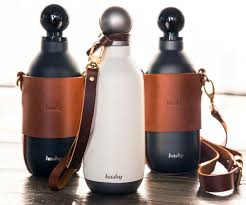
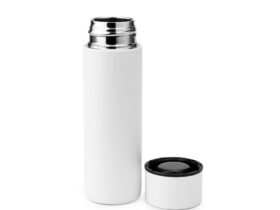
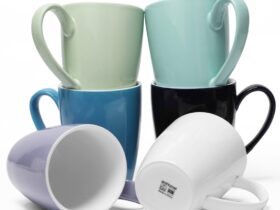


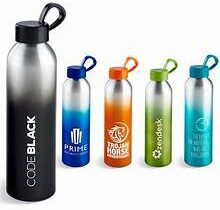
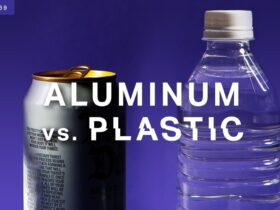
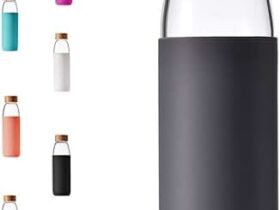
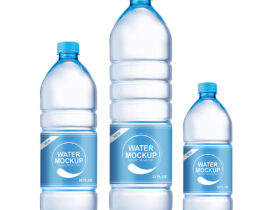

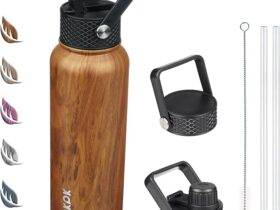
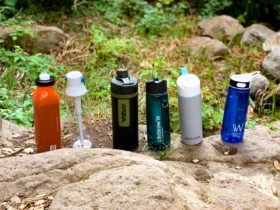
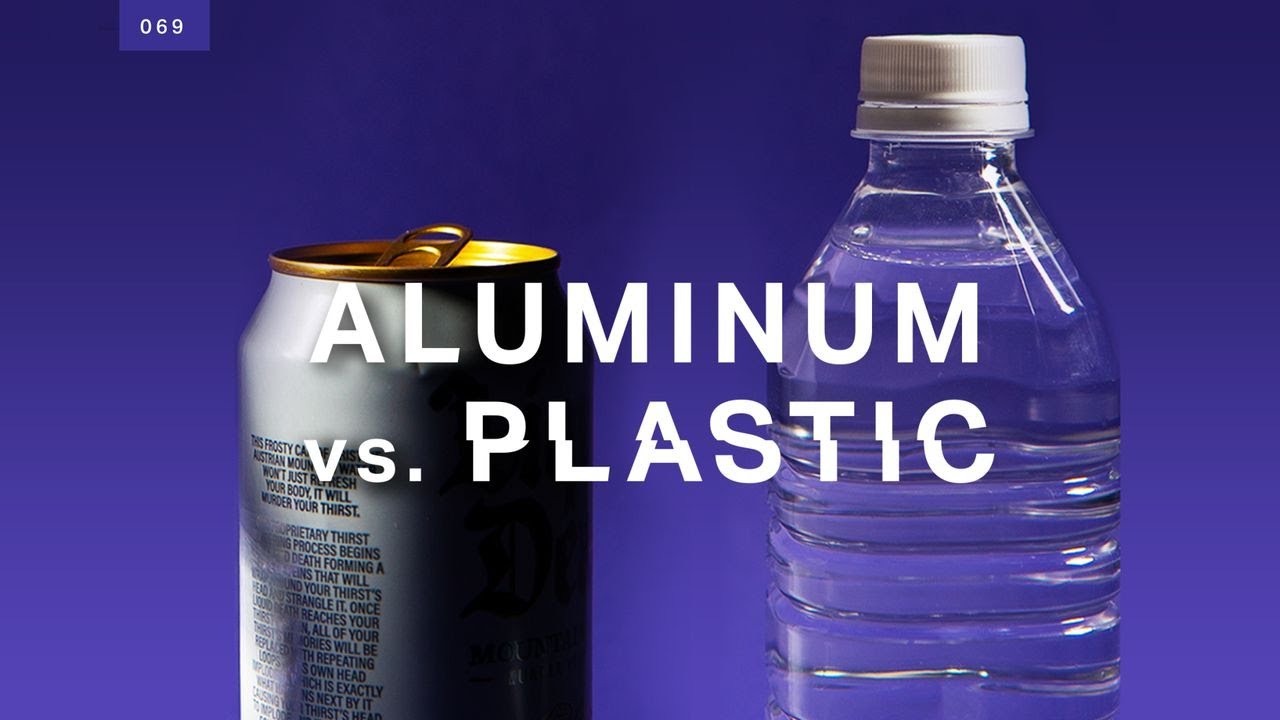

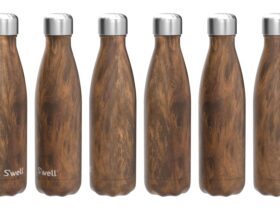
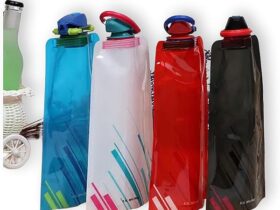
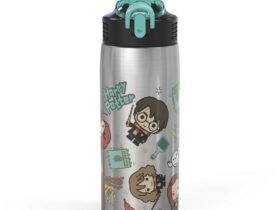

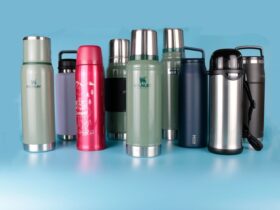
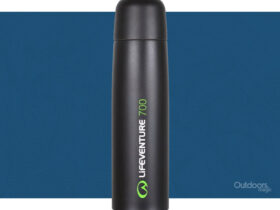
Leave a Reply